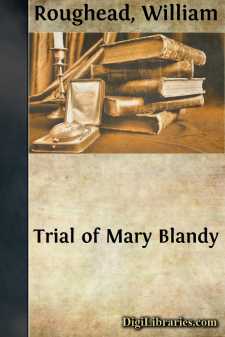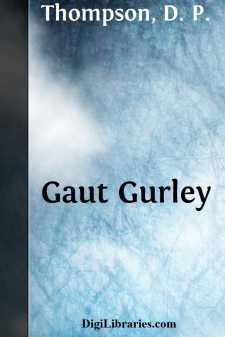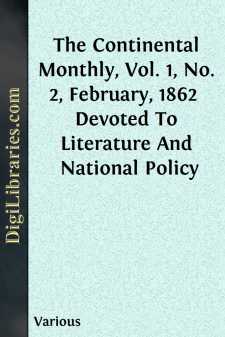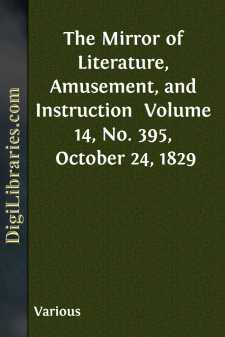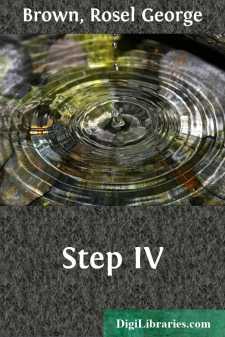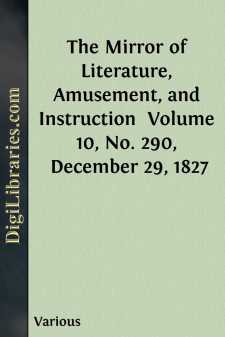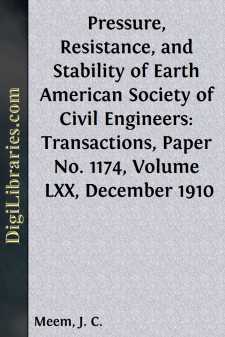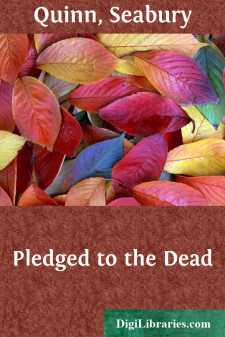Categories
- Antiques & Collectibles 13
- Architecture 36
- Art 48
- Bibles 22
- Biography & Autobiography 815
- Body, Mind & Spirit 144
- Business & Economics 28
- Children's Books 18
- Children's Fiction 14
- Computers 4
- Cooking 94
- Crafts & Hobbies 4
- Drama 346
- Education 58
- Family & Relationships 59
- Fiction 11835
- Games 19
- Gardening 17
- Health & Fitness 34
- History 1378
- House & Home 1
- Humor 147
- Juvenile Fiction 1873
- Juvenile Nonfiction 202
- Language Arts & Disciplines 89
- Law 16
- Literary Collections 686
- Literary Criticism 179
- Mathematics 13
- Medical 41
- Music 40
- Nature 180
- Non-Classifiable 1768
- Performing Arts 7
- Periodicals 1453
- Philosophy 65
- Photography 2
- Poetry 896
- Political Science 203
- Psychology 44
- Reference 154
- Religion 515
- Science 126
- Self-Help 85
- Social Science 83
- Sports & Recreation 34
- Study Aids 3
- Technology & Engineering 59
- Transportation 23
- Travel 463
- True Crime 29
Our website is made possible by displaying online advertisements to our visitors.
Please consider supporting us by disabling your ad blocker.
Trial of Mary Blandy
by: William Roughead
Description:
Excerpt
PREFACE
In undertaking to prepare an account of this celebrated trial, the Editor at the outset fondly trusted that the conviction of "the unfortunate Miss Blandy" might, upon due inquiry, be found to have been, as the phrase is, a miscarriage of justice. To the entertainment of this chivalrous if unlively hope he was moved as well by the youth, the sex, and the traditional charms of that lady, as by the doubts expressed by divers wiseacres concerning her guilt; but a more intimate knowledge of the facts upon which the adverse verdict rested, speedily disposed of his inconfident expectation.
Though the evidence sheds but a partial light upon the hidden springs of the dark business in which she was engaged, and much that should be known in order perfectly to appreciate her symbolic value remains obscure, we can rest assured that Mary Blandy, whatever she may have been, was no victim of judicial error. We watch, perforce, the tragedy from the front; never, despite the excellence of the official "book," do we get a glimpse of what is going on behind the scenes, nor see beneath the immobile and formal mask, the living face; but, when the spectacle of The Fair Parricide is over, we at least are satisfied that justice, legal and poetic, has been done.
Few cases in our criminal annals have occasioned a literature so extensive. The bibliography, compiled by Mr. Horace Bleackley in connection with his striking study, "The Love Philtre" (Some Distinguished Victims of the Scaffold, London, 1905),—which, by his courteous permission, is reprinted in the Appendix, enumerates no fewer than thirty contemporary tracts, while the references to the case by later writers would of themselves form a considerable list.
To this substantial cairn a further stone or two are here contributed. There will be found in the Appendix copies of original MSS. in the British Museum and the Public Record Office, not hitherto published, relating to the case. These comprise the correspondence of Lord Chancellor Hardwicke, Mr. Secretary Newcastle, the Solicitor to the Treasury, and other Government officials, regarding the conduct of the prosecution and the steps taken for the apprehension of Miss Blandy's accomplice, the Hon. William Henry Cranstoun; a petition of "The Noblemen and Gentlemen in the Neighbourhood of Henley-upon-Thames" as to the issuing of a proclamation for his arrest, with the opinion thereon of the Attorney-General, Sir Dudley Ryder; and the deposition of the person by whose means Cranstoun's flight from justice was successfully effected. This deposition is important as disclosing the true story of his escape, of which the published accounts are, as appears, erroneous. Among other matter now printed for the first time may be mentioned a letter from the War Office to the Paymaster-General, directing Cranstoun's name to be struck off the half-pay list; and a letter from John Riddell, the Scots genealogist, to James Maidment, giving some account of the descendants of Cranstoun....


